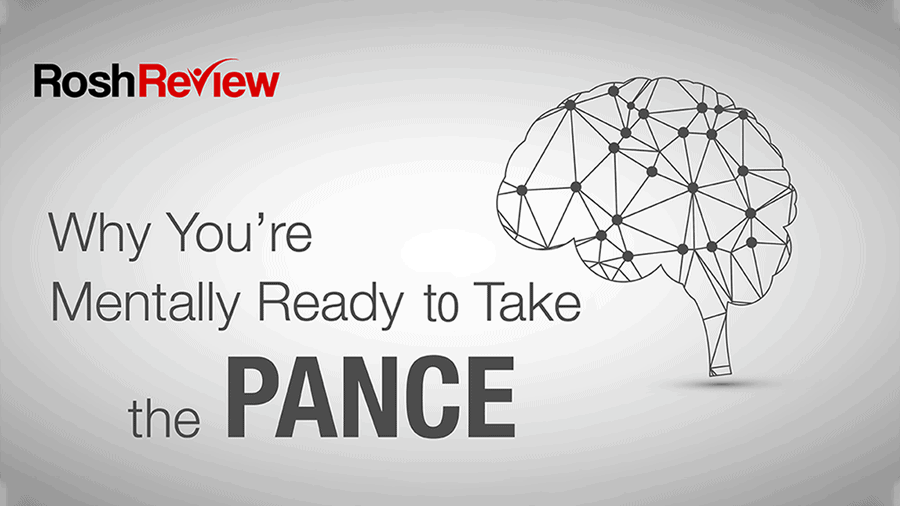Why You’re Mentally Ready to Take the PANCE

The Physician Assistant National Certifying Exam (PANCE): the word itself will send the average PA student into instant tachycardia. It’s what you’ve been told about, taught about, and worked for since the very first day of PA school. To add to the stress, you also know that the past 24+ months of hard work and school, not to mention student loans, won’t be worth anything without this certificate. Your whole PA career depends on this one test.
I already took the test, yet just writing those few lines gave me anxiety! Let’s take a deep breath and break down what you’re feeling, and, hopefully, I’ll answer the glaring question: Are you ready to take the PANCE?
Ever since I took the ominous PANCE, I’ve had the opportunity to talk with a number of students and guide them in what to expect. While the only thing in medicine that is 100% certain is the fact that nothing is 100% certain, I want to share a few pointers that will put things into perspective and hopefully ease a few fears.
First off, the odds are in your favor. According to the NCCPA, in 2018, 98% of first-time PANCE takers passed. Those are pretty good odds. However, for a fresh PA grad, that fact alone may not do a lot to ease the mind. So, let’s break this feeling down further.
In my opinion, the key mental state that’s needed to decrease “PANCE anxiety” (not yet an official ICD-10 dx, but it might be one day) is to know what’s okay and totally normal to be feeling during the exam. Thinking that you don’t know the answer to a question does not mean you’re failing the test.
You’ve been immersed in school for the past 24+ months. Every program’s goal is the same: to prep you for the PANCE. So, regardless of how much you specifically sat down and studied, every exam you took in PA school was preparing you for the PANCE by default. Believe it or not, you have already been studying for this test for two years!
Then why don’t I feel prepared?
So why all the anxiety about not being prepared enough? When you speak to people who have just taken the test, before they get their scores, why do they tell you that they “feel” like they failed? (Even though, by the end of the week, they’ll tell you they actually passed.)
I found that 80–85% of the PANCE questions were very straightforward, which is way more than needed to pass. No tricks, no schemes. The symptoms were obvious, and only one answer will usually make sense—no, you’re not going to order an MRI for chest pain!
If 80–85% of PANCE questions are “easy,” why do many of your peers tell you that, when they left the test, they felt like they failed for sure? This phenomenon is just the way our brains work. We tend to not remember the questions we got right, rather we harp on the questions we didn’t know. On a 300-question test, if 15–20% of the questions are pretty wacky (and no matter how hard you studied there will be questions you get wrong), that’s 45–60 questions that you’ll have no clue what’s flying. So, thinking back after the exam, your brain will be flashing to those 45–60 questions and you’ll “feel” like it was hard when, in reality, most of the exam wasn’t.
In conclusion, remember that during the PANCE you will feel exhausted at some point, and things may not be optimal because the room is too hot (or cold), and you will reach yet another question you think you don’t know. Rather than giving in to this feeling of despair, understand that this is normal. You prepared for this feeling. Take a breath, reframe your situation, push the doubt out of your mind, and remind yourself that there are plenty of questions you got right.
Believe in yourself, and you will be in the 98%.
Good luck! (Even though luck has nothing to do with it.) And if you’d like to read about how other PAs crushed the PANCE, check out these blogs:
Pummel the PANCE series
PANCE Prep Tips
And remember that Rosh Review has all the PANCE review you need.
Interested in joining a live course for accelerated PANCE review? The 4-day Rosh Review PANCE Review Course is now open for enrollment to help you pass the exam on the first take!





Comments (0)